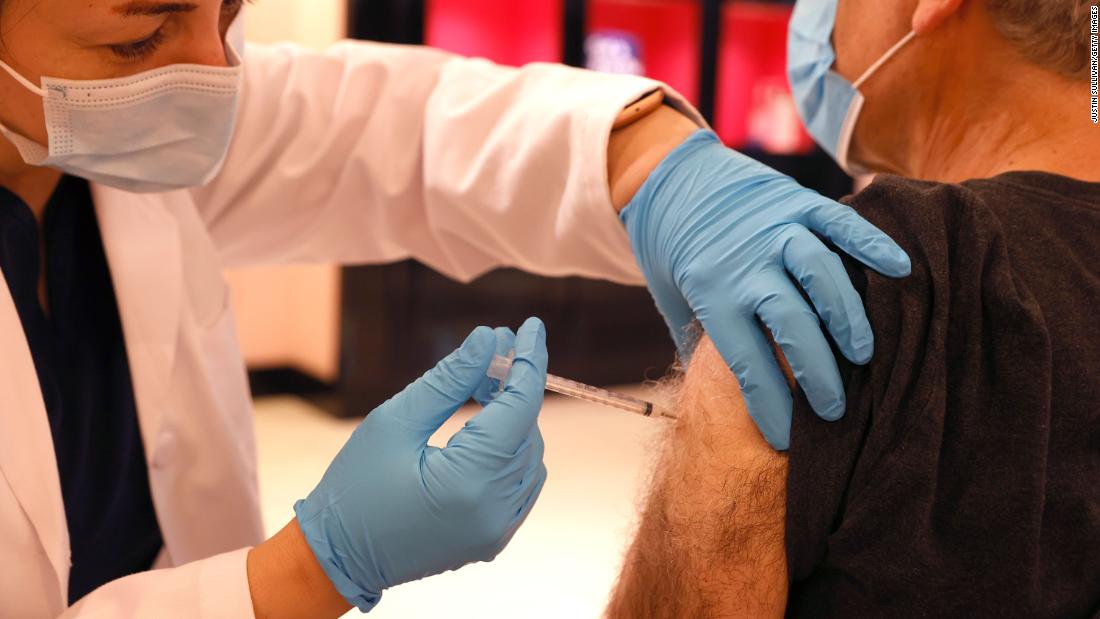At the same time, those who are fully vaccinated and qualify for a booster dose are providing us with a clearer understanding of the central questions surrounding the booster: who and when and with which vaccine? The US Centers for Disease Control and Prevention currently
recommends a booster for those 65 and older, as well as those 50 to 64 with preexisting health/medical conditions that place them at higher risk for severe disease. Additional groups with occupational and other risk factors, and anyone over 18 who got the single-dose J&J vaccine at least two months ago also qualify.
But an
article published last week in The Lancet could very well result in an expansion of the current guidance. In the study, Israeli researchers demonstrated the benefits of a vaccine "boost" for recipients of the Pfizer/BioNTech vaccine -- a third shot given at least five months after completion of the two-dose series.
Investigators used data from a health organization caring for more than half of the Israeli population, splitting over 1.4 million participants into two groups: one that had received the third shot, and a demographically and medically identical group that had not. Each group was then followed for up to two months after the booster (and for an equivalent time in the unboosted).
The results are startling: Compared to those who did not receive a third shot, the booster decreased the rate of hospitalization, severe disease and death from Covid-19 by about 80% to over 90%, no matter the person's sex, number of other underlying medical conditions, or age if over 40 years. (The analysis lumped people into three age groups: 16 to 39 years; 40 to 69 years; and older than 69 years. Comparable reduction in infection rate was seen in the middle and older groups but cases were too infrequent in those under 40 years old to draw a firm conclusion).
Although only conjecture, this would seem to demonstrate that waning -- and boostable -- immunity is indeed responsible for serious and even fatal new cases in a well-vaccinated individual.
The article adds to the remarkable work over the last year of investigators from Israel who have demonstrated the
efficacy of broad scale vaccination, the
risk of breakthrough infection and the
need for booster shots in the elderly. This most recent work, using not just a lab test but clear clinical endpoints of hospitalization, severe disease and death, has demonstrated the value of the third shot across all populations.
Many of these reports have been
met with some hesitancy by many
public health experts and scientists. The concerns are well-founded: Using one small country and only one brand of vaccine does indeed create uncertainty about generalizability of any findings. Plus, much of the research has not used a randomized placebo-controlled format -- the
sine qua non of clinical investigation. A placebo-controlled trial, though, would require dummy shots to be given and would take months and months -- precious time given the world's difficulties containing the virus.
Yet it is ironic that
criticism of many Covid-19 studies is based on their being too practical, too rapid, too real-world. Forty years ago, as the world struggled with the
untamed global epidemic of human immunodeficiency virus (HIV) infection, the commentary went in the exact opposite direction. Scientists were
harshly criticized by their sticking to old study methods that were slow, ponderous and, in the view of AIDS activists, inhumane.
This loud public disagreement led to a radical redesign in how best to determine whether a new drug or vaccine works. It wasn't easy: Balancing the need to obtain reliable results as quickly as possible and the humanitarian pressures of a global catastrophe is nearly impossible. But nowhere is the benefit of decades of clinical trials improvement more evident than in the world's response to Covid-19. Practicality, it turns out, is as crucial as statistical significance.
So, for now, despite some concerns about methods, the best data on the usefulness of boosting is this new study from Israel. It may turn out to underestimate or overestimate the benefits of the booster shot but in its real-world study assumptions, it mimics the real world we live in -- one where no decision, medical or otherwise, ever is made with complete information or certainty. Given this latest data, the CDC should revise its recommendation for everyone age 40 and older and tell them to roll up their sleeve for yet another shot. It will save lives.


No comments:
Post a Comment